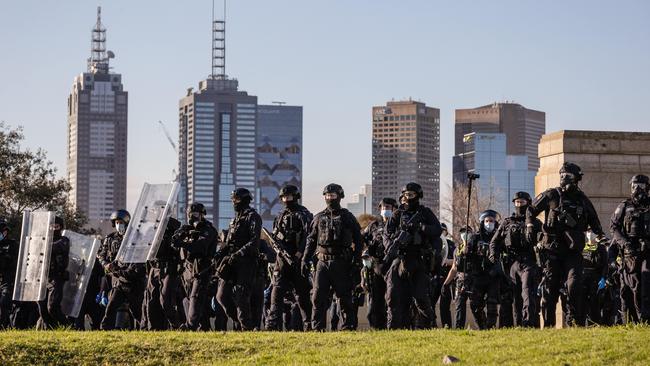
One of the priority recommendations of the Covid-19 Response Inquiry Report released this week is to “Finalise establishment of the Australian Centre for Disease Control (CDC) and give priority to the following functions for systemic preparedness to become trusted and authoritative on risk assessment and communication, and a national repository of communicable disease intelligence capability and advice.”
How wonderful – it can have its own team of medicos, administrators and communications specialists, and can somehow hover over the national cabinet, eight state and territory health departments, the federal health bureaucracy and the public health functions of local government.
If you wanted to get to the core flaw of our pandemic response it would surely be that too many people expected government to solve their problems and too many politicians, bureaucrats, police and other authorities thought government was the cure. Perhaps the addition of a new agency reveals a strategy to attack the next pandemic with more government and bureaucracy, thereby boring the virus into submission.
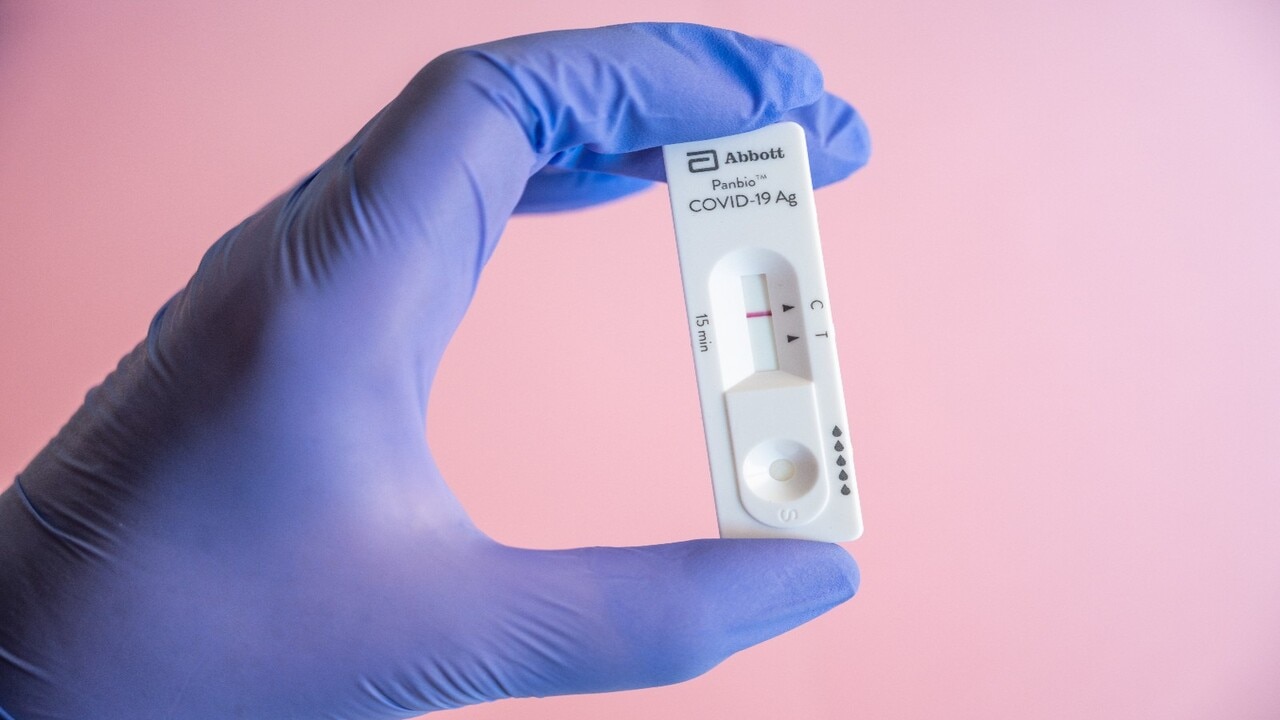
This nation has had royal commissions into police, hospitals, bridges, stadium lights, unions, the meat and other industries, and government programs such as Robodebt and the home insulation scheme. But apparently the Covid-19 pandemic that was responsible for more than 24,000 Australian deaths and delivered a $158bn hit to the economy was not worthy of such a forensic inquiry.
Instead, we got what amounted to a public service review conducted by epidemiologist Catherine Bennett, health economist Angela Jackson and the chairwoman, career bureaucrat Robyn Kruk.
Their report runs to almost 900 pages and perhaps the easiest way to convey its turgid style is to inform you that on page six it includes an “Acknowledgement of Country” and a warning about “distressing” content.
To be fair, this trio made some of the obvious points, and Bennett was one of the more sensible medical voices throughout the pandemic. But this report is, in large part, a prolix detailing of the bleeding obvious that reads like it was written by a committee of public service underlings – it lacks any of the forensic rigour and harsh accountability the nation needs and deserves.
Need I remind you that a pregnant woman was arrested in her home for daring to dissent against the pandemic restrictions; rubber bullets were fired at people protesting against unscientific and unnecessary vaccine mandates; children were kept from their parents’ deathbeds; loved ones missed funerals; families lost businesses; people were forcibly arrested for daring to sit in a park or walk outdoors without a mask; kids were kept from school; Victorians were locked down for the best part of a year and had a curfew imposed without any medical advice to recommend it; patients missed medical screenings and developed cancers; a debt and inflation problem was passed on to younger generations; and Australians were prevented from leaving the country or returning home. The list of overreach goes on.
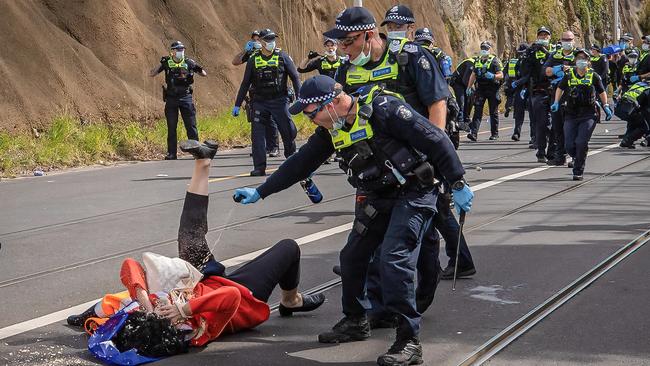
There needs to be a reckoning. Because politicians and bureaucrats had no excuse – hindsight was not needed, as anyone reading these pages would know, the core failings and missteps were obvious early.
Most politicians did not want to know, they were drunk on power and deliberately fuelled fear to underpin their power, and a sensationalist media was complicit.
We went from the sensible approach of “flattening the curve” in a plan to slow the spread of the disease and avoid overwhelming our health system, to an undeclared “zero Covid” approach that locked us down, shut borders and severely limited our liberties until we waited for ridiculously high levels of community vaccination to liberate us. None of these changes was debated or even announced – parliaments were not sitting, debate was not tolerated and politicians changed their approach on a whim and harnessed hysteria to win compliance.
Remember the daily theatre of televised media conferences from the premiers, announcing numbers of infections, often revealing additional rules and restrictions, and sometimes describing the single death of a 90-year-old in an aged-care facility as a “tragedy”? Every life is sacred and valued, of course, and every death is sad, but we lost all perspective in those circumstances.
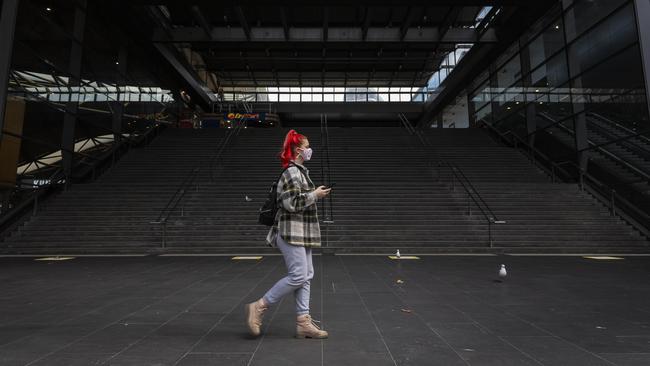
At the same time children were banned from school, crippling their education and socialisation, yet the medical advice was clear all along that this was unwise. Many kids will never recover and school attendance records bear that out – thousands never came back.
A separate independent Covid review, Fault Lines, published in October 2022, was chaired by former federal bureaucrat and Western Sydney University chancellor Peter Shergold. It called out the politics: “Lockdown overreach in 2020 and 2021 was as much a response to political perceptions of community anxiety as to expert advice.”
Yet we have ourselves to blame. The extent to which most people succumbed to the scare tactics and edicts was astonishing and depressing. To be fair, they were denied a lot of relevant information and informed debate was stifled, even secretly censored from digital platforms.
Nonetheless, it was irksome to know your fellow citizens were using a pandemic hotline to dob in their neighbours and friends over heinous crimes such as having mates over for a barbecue.
The NSW police minister boasted about getting 10,000 calls – seriously, the Stasi would be proud. This all seemed about as Australian as warm beer, or as deporting a tennis champion because he could not prove he was vaccinated – I am surprised Novak Djokovic ever returned.
We like to think of ourselves as a self-reliant, practical and stoic lot, with a healthy streak of larrikinism. Surely there was a time when this country would learn about two Melbourne men who flew to Perth via Darwin, falsifying documents and dodging Covid restrictions to get to their team’s AFL grand final, and laud them as heroes.
But these men, Hayden Burbank and Mark Babbage, were charged and jailed, while stern media reports denounced them because they “exposed an entire state” to the threat of Covid. Still, they got to see the Demons win their first premiership for 57 years, and even made it into the rooms after the game, so it was probably worth three months in the lockup.
There was at least enough in the Covid inquiry, as my colleague Rachel Baxendale wrote this week, to make it feel like “an overdue vindication for those of us who sought at the time – frequently with little success – to compel authorities to justify the measures they imposed upon us”.
The report details how “enforced quarantine, curfews and closing outdoor playgrounds, were not supported by pre-existing evidence, and would have benefited from being tested with epidemiologists and behavioural experts and evaluated in real time to ensure proportionality”.
The measures were, of course, over the top, unnecessary, cruel and counter-productive.
In Victoria people were arrested for fishing and premier Daniel Andrews scolded citizens for walking in the park and watching sunsets.
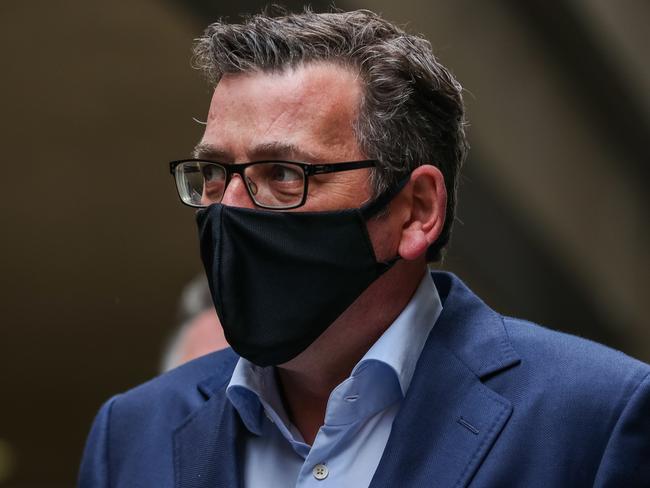
Yet from this report we get mainly bureaucratese: “Establish mechanisms for National Cabinet to receive additional integrated expert advice for a whole-of-society emergency, including advice on social, human rights, economic and broader health impacts (including mental health considerations), as well as specific impacts on priority populations.”
And more to the point is this fundamental demand: “Develop and agree principles for the transparent release of advice that informs decision-making in a public health emergency.”
It is incredible that such a plea to openness would need to be made. And it is alarming that our political leaders thought they could get away with the most draconian peacetime controls on the population without being transparent and justifying their decisions in the first place.
But, then, they did get away with it, didn’t they? We need a royal commission; we are owed one.





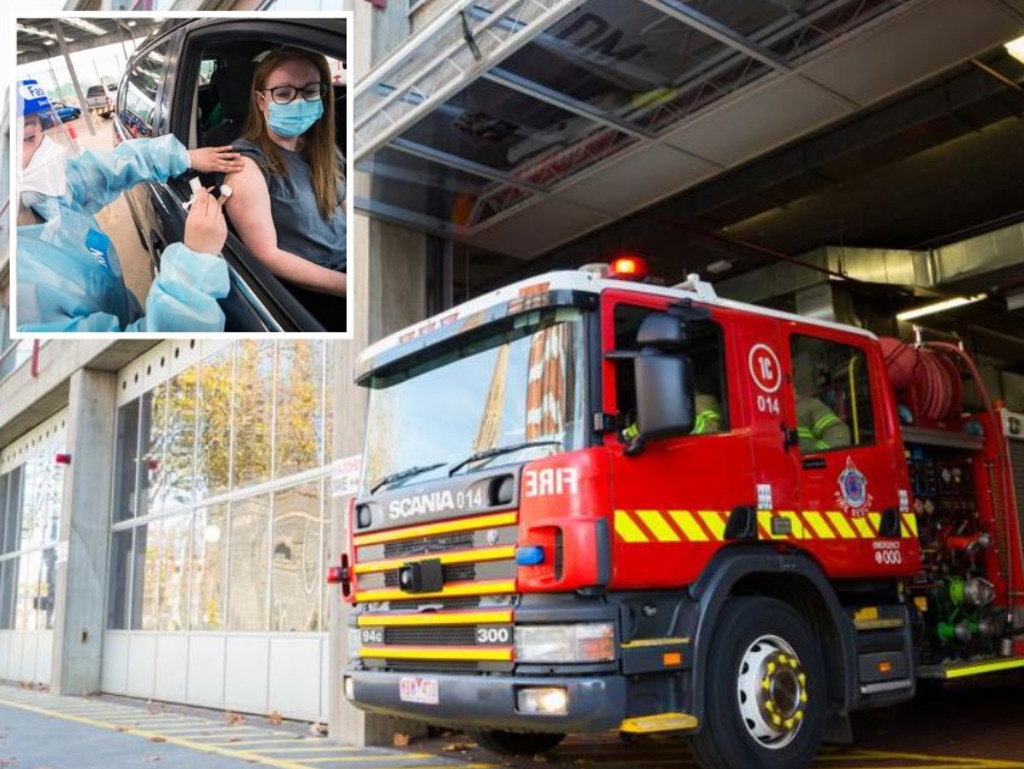


It should be beyond belief that Australia’s official response to the greatest overreach by government and bureaucracy is to establish, wait for it, more government and bureaucracy. But, sadly, it is only what we have come to expect from our over-governed and timorous country.